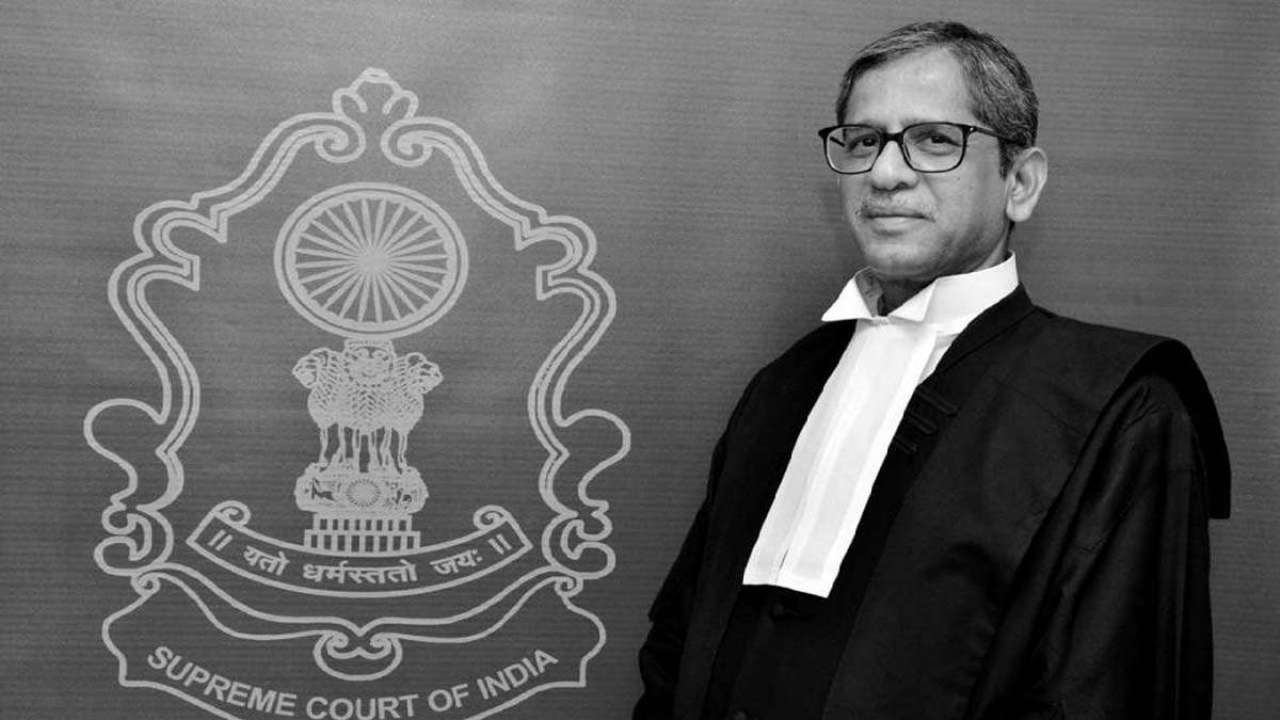
New Delhi: Deliberate inaction by governments despite judicial pronouncements is not good for the health of democracy, Chief Justice of India NV Ramana said on Friday. He was addressing the Joint Conference of Chief Ministers and Chief Justices of High Courts. He also said that the Constitution provides for the separation of power among the three organs of democracy, and while discharging duties these three organs must not cross Lakshman Rekha (limits). Prime Minister Narendra Modi, who inaugurated the conference, called for the use of local languages during court proceedings. He also appealed to the chief ministers to repeal outdated laws.
"Constitution provides separation of power among three organs and the harmonious function between three organs strengthens democracy. While discharging our duty, we should be mindful of Lakshman Rekha," Justice Ramana said.
He also flagged frivolous litigations, saying that PILs are increasingly becoming what he called "personal interest litigations". He said at times, PILs are used to stall projects and pressurise public authorities.
"The rising number of frivolous litigations is an area of concern. For example, the well-meaning concept of public interest litigation is at times turning into personal interest litigation. No doubt, PIL has served a lot of public interest. However, it is sometimes being misused to stall projects or pressurise public authorities.
"These days, PIL has become a tool for those who want to settle political scores or corporate rivalry. Realising the potential for misuse, courts are now highly cautious in entertaining the same," Justice Ramana added.
PM Modi said the use of local languages in courts will enhance the confidence of the masses in the judiciary.
"We need to encourage local languages in courts. This will not only increase the confidence of common citizens in the justice system but they will feel more connected to it," he said.
Calling for the repeal of obsolete laws, Modi said, "In 2015, we identified about 1,800 laws which had become irrelevant. Out of these, 1,450 such laws of the Centre were abolished. But, only 75 such laws have been abolished by the states."
With inputs from PTI